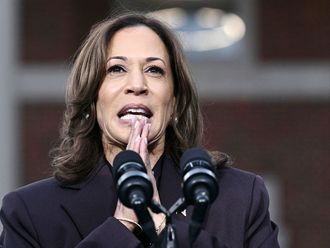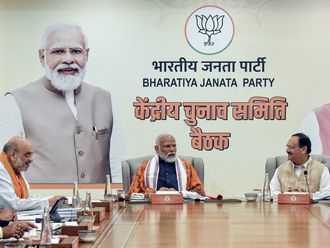
At around 5am, Ed Balls delivered a victory speech that would once have seemed impossible. It wasn't just that he had won a contest that some had predicted would yield the Portillo moment of 2010, holding back a fierce Conservative challenge in his constituency of Morley and Outwood. It was that he hailed the night as, if not quite a national victory for Labour, then a kind of success. "Tonight we have denied the Conservatives a mandate," he said and though they howled and jeered in the hall, he wasn't wrong.
Last autumn the Tories seemed to be on course for a walloping win over Labour, on course for a governing majority. Labour were meant to be crushed, losing seats in every corner of the land. As things stood at dawn on Thursday, Labour had refused to follow that script. Yes, it had lost in Carlisle and Harlow and many, many more places — but it had also clung on in seats it once seemed destined to lose: Islington South, Bolton West, Oxford East and even that scene of such woes, Rochdale. If not in national share of the vote, which hovered around the Michael Foot mark, then at least in seats retained, Labour showed a resilience that few had anticipated. The very fact that they were still in the ring at 6am, after 15 rounds, counted as quite an achievement.
On a night that lacked a clear winner, there was a more visible loser. The British political system did not look good in the dead of night. Rather, every aspect of the UK's antique machinery seemed to be creaking under the strain. The loudest screech came from a constitutional setup that, it suddenly became clear, was not so much stuck in the 19th century as the medieval era. With both the initial exit poll and the actual results pointing to a hung parliament, Labour and Conservative politicians began duelling over who would wield power if such a situation persisted beyond daybreak. The Tories said Gordon Brown had no right to stay in power; Labour insisted he could stay in Downing Street so long as the Conservatives lacked an overall majority.
At first glance it looked like a thoroughly modern tug of war, conducted via conflicting live TV interviews — the kind of standoff that happens in the "emerging democracies" of central and eastern Europe, when two sides claim victory in the same election. But then Peter Hennessy, one of that select band of constitutional scholars who explain the rules of the British system to the rest of us, appeared on the BBC to deliver his ruling. The only person who could settle the matter definitively was, the professor declared, the Queen.
There was no point David Cameron insisting that he had the moral right to govern, Hennessy said. When it came to forming a UK government, moral rights counted for nothing. The Conservative leader could become prime minister only if Brown resigned and he, Cameron, kissed the hand of the Queen.
Rearguard action
For their part, Labour ministers lined up to profess their willingness to form a coalition with the Lib Dems. Brown himself seemed to hint at such an outcome, offering to do his bit for a "strong, stable principled government".
One Labour source said conversations had already begun between his party and the Liberal Democrats — not with Nick Clegg, but with those senior Lib Dem figures worried that their leader would not seize the party's "once-in-a-lifetime opportunity".
Was such talk academic given the 290 plus seats won by the Tories?
No one could see clearly enough to tell. All that was visible were the outlines of a system designed a long, long time ago.
— Guardian News & Media Ltd
Jonathan Freedland writes a weekly column for The Guardian.










